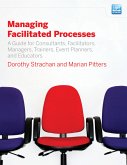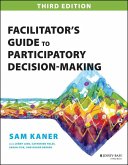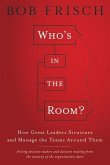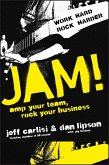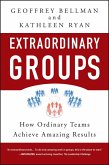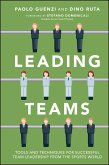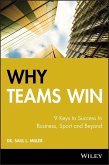Dorothy Strachan
Making Questions Work (eBook, PDF)
A Guide to How and What to Ask for Facilitators, Consultants, Managers, Coaches, and Educators
45,99 €
45,99 €
inkl. MwSt.
Sofort per Download lieferbar

0 °P sammeln
45,99 €
Als Download kaufen

45,99 €
inkl. MwSt.
Sofort per Download lieferbar

0 °P sammeln
Jetzt verschenken
Alle Infos zum eBook verschenken
45,99 €
inkl. MwSt.
Sofort per Download lieferbar
Alle Infos zum eBook verschenken

0 °P sammeln
Dorothy Strachan
Making Questions Work (eBook, PDF)
A Guide to How and What to Ask for Facilitators, Consultants, Managers, Coaches, and Educators
- Format: PDF
- Merkliste
- Auf die Merkliste
- Bewerten Bewerten
- Teilen
- Produkt teilen
- Produkterinnerung
- Produkterinnerung

Bitte loggen Sie sich zunächst in Ihr Kundenkonto ein oder registrieren Sie sich bei
bücher.de, um das eBook-Abo tolino select nutzen zu können.
Hier können Sie sich einloggen
Hier können Sie sich einloggen
Sie sind bereits eingeloggt. Klicken Sie auf 2. tolino select Abo, um fortzufahren.

Bitte loggen Sie sich zunächst in Ihr Kundenkonto ein oder registrieren Sie sich bei bücher.de, um das eBook-Abo tolino select nutzen zu können.
This book is an invaluable desk reference for facilitators, leaders, coaches and anyone who wants to engage in more effective learning and decision-making conversations. It offers over 1700 rich questions that you can borrow or adapt to improve your inquiry skills, and provides clear frameworks that point to when, where, and why particular questions are most useful.
- Geräte: PC
- mit Kopierschutz
- eBook Hilfe
- Größe: 1.58MB
Andere Kunden interessierten sich auch für
![Managing Facilitated Processes (eBook, PDF) Managing Facilitated Processes (eBook, PDF)]() Dorothy StrachanManaging Facilitated Processes (eBook, PDF)32,99 €
Dorothy StrachanManaging Facilitated Processes (eBook, PDF)32,99 €![Facilitator's Guide to Participatory Decision-Making (eBook, PDF) Facilitator's Guide to Participatory Decision-Making (eBook, PDF)]() Sam KanerFacilitator's Guide to Participatory Decision-Making (eBook, PDF)33,99 €
Sam KanerFacilitator's Guide to Participatory Decision-Making (eBook, PDF)33,99 €![Who's in the Room? (eBook, PDF) Who's in the Room? (eBook, PDF)]() Bob FrischWho's in the Room? (eBook, PDF)19,99 €
Bob FrischWho's in the Room? (eBook, PDF)19,99 €![Jam! Amp Your Team, Rock Your Business (eBook, PDF) Jam! Amp Your Team, Rock Your Business (eBook, PDF)]() Jeff CarlisiJam! Amp Your Team, Rock Your Business (eBook, PDF)16,99 €
Jeff CarlisiJam! Amp Your Team, Rock Your Business (eBook, PDF)16,99 €![Extraordinary Groups (eBook, PDF) Extraordinary Groups (eBook, PDF)]() Geoffrey M. BellmanExtraordinary Groups (eBook, PDF)17,99 €
Geoffrey M. BellmanExtraordinary Groups (eBook, PDF)17,99 €![Leading Teams (eBook, PDF) Leading Teams (eBook, PDF)]() Paolo GuenziLeading Teams (eBook, PDF)21,99 €
Paolo GuenziLeading Teams (eBook, PDF)21,99 €![Why Teams Win (eBook, PDF) Why Teams Win (eBook, PDF)]() Saul L. MillerWhy Teams Win (eBook, PDF)16,99 €
Saul L. MillerWhy Teams Win (eBook, PDF)16,99 €-
-
-
This book is an invaluable desk reference for facilitators, leaders, coaches and anyone who wants to engage in more effective learning and decision-making conversations. It offers over 1700 rich questions that you can borrow or adapt to improve your inquiry skills, and provides clear frameworks that point to when, where, and why particular questions are most useful.
Dieser Download kann aus rechtlichen Gründen nur mit Rechnungsadresse in A, B, BG, CY, CZ, D, DK, EW, E, FIN, F, GR, HR, H, IRL, I, LT, L, LR, M, NL, PL, P, R, S, SLO, SK ausgeliefert werden.
Produktdetails
- Produktdetails
- Verlag: Wiley-ISTE
- Seitenzahl: 272
- Erscheinungstermin: 17. Januar 2007
- Englisch
- ISBN-13: 9780787988678
- Artikelnr.: 38228725
- Verlag: Wiley-ISTE
- Seitenzahl: 272
- Erscheinungstermin: 17. Januar 2007
- Englisch
- ISBN-13: 9780787988678
- Artikelnr.: 38228725
- Herstellerkennzeichnung Die Herstellerinformationen sind derzeit nicht verfügbar.
Dorothy Strachan is a partner in Strachan-Tomlinson, a process consulting firm based in Ottawa, Canada. She has been a professional facilitator since 1974. Dorothy's practice is in three main areas: process design and facilitation, organizational interventions such as strategic planning and team development, and the creation of customized workshops and learning programs. She is the author of several publications in areas such as leadership development, facilitation, strategic planning, and effective coaching in high-performance sports. Strachan-Tomlinson has a special interest in the health sector.
Acknowledgments xv
The Author xvii
Preface xix
Introduction xxi
Part One How to Ask Questions
1 Questions That Work 3
Process Frameworks 4
Conscious Questioning 8
Framing Questions 9
Planned Questioning 10
Closed and Open Questions 10
Closed Questions 10
Open Questions 12
Skills for Conscious Questioning 13
Customize for Context 13
Create Inviting Questions 15
Clarify Assumptions 17
Ask with Sensitivity 18
Accommodate Risk and Anxiety 20
Maintain a Participant-Observer Stance 22
Consider "Why?" Carefully 24
When in Doubt, Check It Out 25
Reminders 26
2 Core Facilitation Values 31
Values Into Action 32
Integrity 33
Guidelines for Asking Questions with Integrity 33
Maintain Objectivity 33
Clarify Confidentiality 35
Be Sensitive to Conflicts of Interest 36
Avoid Collusion 39
Ask Questions Fairly 40
Determine Authorship 41
Address Imbalances in Power and Information 41
Operationalizing the Value of Integrity 42
Authenticity 44
Guidelines for Asking Questions with Authenticity 45
Build Group Ownership for Outcomes 45
Minimize Self-Deception About a Process 46
Be Clear About Intentions 46
Acknowledge Problems 47
Be Honest About Your Competencies 47
Be Present; Tune In 48
Hear Your Client's Perspective 48
Operationalizing the Value of Authenticity 48
Mutual Respect 50
Guidelines for Asking Questions with Mutual Respect 51
Enable Equity 51
Clarify Group Norms 52
Respect Exchange Times 53
Encourage Direct Interaction 53
Be Patient; Whose Silence Is It? 54
Respect the Energy in the Group 54
Operationalizing the Value of Mutual Respect 55
Leaning on Values 55
3 Follow-up Questions 59
Prompt for Clarification 60
Prompt for Perspectives 61
Prompt for Rationale 62
Prompt for Options 63
Prompt for Implications 63
Part Two What to Ask When
4 Questions for Opening a Session 69
Process Framework 69
Guidelines for Questions to Open a Session 71
Question Bank 73
Getting to Know One Another 74
Focus: Sharing Personal Information 74
Focus: Exploring Work Experience 77
Clarifying Expectations 80
Focus: Understanding Hopes and Concerns 80
Focus: Meeting Objectives and Outcomes 83
Building Commitment 84
Focus: Developing Group Norms 85
Focus: Building Ownership 88
Common Challenges 90
When Time Is Short 90
Opening a Workshop on a Specific Topic 91
Opening a Series of Workshops 94
Loosening Up a Tight Group 96
5 Questions for Enabling Action 99
Process Framework 99
Guidelines for Questions to Enable Action 102
Question Bank 104
"What?": The Notice Questions (Observations) 104
"So What?": The Meaning Questions (Reflections) 107
Focus: Relevance and Fit 107
Focus: The Organization 110
Focus: The Individual 112
"Now What?": The Application Questions (Actions) 114
Focus: Personal Change 114
Focus: Organizational Change 116
Focus: Building Ownership 117
Focus: Operational Planning 119
Common Challenges 122
Supporting Action After a Meeting of a Network or Coalition 122
Enabling a Structured Approach to Reflection and Action 123
Discussing and Making Decisions That Affect Organizational Policies 124
Applying Research (Knowledge Translation) 125
Workplace Stress: Personal Change 128
6 Questions for Thinking Critically 131
Process Framework 133
Guidelines for Questions to Enable Critical Thinking 134
Question Bank 136
Making Assumptions and Perspectives Explicit 136
Focus: The Individual 136
Focus: The Team or Organization 138
Focus: The Broader Context 141
Understanding Interests and Power Relationships 144
Focus: The Individual 144
Focus: The Team or Organization 147
Focus: The Broader Context 149
Exploring Alternative Ways of Thinking and Acting 151
Focus: The Individual 151
Focus: The Team or Organization 155
Focus: The Broader Context 156
Making Ethical Choices 158
Focus: The Individual 158
Focus: The Team or Organization 161
Focus: The Broader Context 164
Common Challenges 165
Thinking Critically About the Future 165
Acting Ethically in Low-Resource Countries 166
Thinking Critically About Policy Changes 167
7 Questions for Addressing Issues 171
Process Framework 171
Guidelines for Questions to Address Issues 172
Question Bank 175
Understanding the Situation 176
Focus: Internal Considerations 176
Focus: External Considerations 180
Clarifying the Issues 182
Focus: Issue Description 183
Focus: Why This Is an Issue 185
Focus: Stakeholders 187
Generating Options for Action 189
Focus: A Positive Future 189
Focus: Solutions 190
Focus: Learning from Others 192
Testing Options for Action 193
Focus: Rationale 194
Focus: Potential Impact 194
Focus: Strategic Fit 195
Making a Decision 197
Taking Action 199
Common Challenges 202
Encouraging Candor and Confidentiality 202
Putting Sensitive Issues on the Table 203
Issues Management in a Nongovernmental Organization 204
Issues-Based Planning: A Redundancy Program 205
8 Questions for Closing a Session 209
Process Framework 209
Guidelines for Questions to Close a Session 210
Question Bank 211
Looking Backward 212
Focus: Midway Through a Process 212
Focus: The Experience as a Whole 213
Focus: Learning 216
Focus: Productivity 218
Focus: Management of the Process 221
Looking Forward 222
Focus: Celebrating Success 222
Focus: Building Ownership for Follow-Through 223
Focus: Taking Action-Knowledge Translation 224
Focus: Future Collaboration 227
Common Challenges 228
Bringing a Multisite Project to a Close 228
Closing a National, Issues-Based Workshop 230
Conducting Exit Interviews in Small Groups 231
Reviewing a Pilot Workshop 234
In Closing: About Questions-What I Know for Sure 237
References 241
The Author xvii
Preface xix
Introduction xxi
Part One How to Ask Questions
1 Questions That Work 3
Process Frameworks 4
Conscious Questioning 8
Framing Questions 9
Planned Questioning 10
Closed and Open Questions 10
Closed Questions 10
Open Questions 12
Skills for Conscious Questioning 13
Customize for Context 13
Create Inviting Questions 15
Clarify Assumptions 17
Ask with Sensitivity 18
Accommodate Risk and Anxiety 20
Maintain a Participant-Observer Stance 22
Consider "Why?" Carefully 24
When in Doubt, Check It Out 25
Reminders 26
2 Core Facilitation Values 31
Values Into Action 32
Integrity 33
Guidelines for Asking Questions with Integrity 33
Maintain Objectivity 33
Clarify Confidentiality 35
Be Sensitive to Conflicts of Interest 36
Avoid Collusion 39
Ask Questions Fairly 40
Determine Authorship 41
Address Imbalances in Power and Information 41
Operationalizing the Value of Integrity 42
Authenticity 44
Guidelines for Asking Questions with Authenticity 45
Build Group Ownership for Outcomes 45
Minimize Self-Deception About a Process 46
Be Clear About Intentions 46
Acknowledge Problems 47
Be Honest About Your Competencies 47
Be Present; Tune In 48
Hear Your Client's Perspective 48
Operationalizing the Value of Authenticity 48
Mutual Respect 50
Guidelines for Asking Questions with Mutual Respect 51
Enable Equity 51
Clarify Group Norms 52
Respect Exchange Times 53
Encourage Direct Interaction 53
Be Patient; Whose Silence Is It? 54
Respect the Energy in the Group 54
Operationalizing the Value of Mutual Respect 55
Leaning on Values 55
3 Follow-up Questions 59
Prompt for Clarification 60
Prompt for Perspectives 61
Prompt for Rationale 62
Prompt for Options 63
Prompt for Implications 63
Part Two What to Ask When
4 Questions for Opening a Session 69
Process Framework 69
Guidelines for Questions to Open a Session 71
Question Bank 73
Getting to Know One Another 74
Focus: Sharing Personal Information 74
Focus: Exploring Work Experience 77
Clarifying Expectations 80
Focus: Understanding Hopes and Concerns 80
Focus: Meeting Objectives and Outcomes 83
Building Commitment 84
Focus: Developing Group Norms 85
Focus: Building Ownership 88
Common Challenges 90
When Time Is Short 90
Opening a Workshop on a Specific Topic 91
Opening a Series of Workshops 94
Loosening Up a Tight Group 96
5 Questions for Enabling Action 99
Process Framework 99
Guidelines for Questions to Enable Action 102
Question Bank 104
"What?": The Notice Questions (Observations) 104
"So What?": The Meaning Questions (Reflections) 107
Focus: Relevance and Fit 107
Focus: The Organization 110
Focus: The Individual 112
"Now What?": The Application Questions (Actions) 114
Focus: Personal Change 114
Focus: Organizational Change 116
Focus: Building Ownership 117
Focus: Operational Planning 119
Common Challenges 122
Supporting Action After a Meeting of a Network or Coalition 122
Enabling a Structured Approach to Reflection and Action 123
Discussing and Making Decisions That Affect Organizational Policies 124
Applying Research (Knowledge Translation) 125
Workplace Stress: Personal Change 128
6 Questions for Thinking Critically 131
Process Framework 133
Guidelines for Questions to Enable Critical Thinking 134
Question Bank 136
Making Assumptions and Perspectives Explicit 136
Focus: The Individual 136
Focus: The Team or Organization 138
Focus: The Broader Context 141
Understanding Interests and Power Relationships 144
Focus: The Individual 144
Focus: The Team or Organization 147
Focus: The Broader Context 149
Exploring Alternative Ways of Thinking and Acting 151
Focus: The Individual 151
Focus: The Team or Organization 155
Focus: The Broader Context 156
Making Ethical Choices 158
Focus: The Individual 158
Focus: The Team or Organization 161
Focus: The Broader Context 164
Common Challenges 165
Thinking Critically About the Future 165
Acting Ethically in Low-Resource Countries 166
Thinking Critically About Policy Changes 167
7 Questions for Addressing Issues 171
Process Framework 171
Guidelines for Questions to Address Issues 172
Question Bank 175
Understanding the Situation 176
Focus: Internal Considerations 176
Focus: External Considerations 180
Clarifying the Issues 182
Focus: Issue Description 183
Focus: Why This Is an Issue 185
Focus: Stakeholders 187
Generating Options for Action 189
Focus: A Positive Future 189
Focus: Solutions 190
Focus: Learning from Others 192
Testing Options for Action 193
Focus: Rationale 194
Focus: Potential Impact 194
Focus: Strategic Fit 195
Making a Decision 197
Taking Action 199
Common Challenges 202
Encouraging Candor and Confidentiality 202
Putting Sensitive Issues on the Table 203
Issues Management in a Nongovernmental Organization 204
Issues-Based Planning: A Redundancy Program 205
8 Questions for Closing a Session 209
Process Framework 209
Guidelines for Questions to Close a Session 210
Question Bank 211
Looking Backward 212
Focus: Midway Through a Process 212
Focus: The Experience as a Whole 213
Focus: Learning 216
Focus: Productivity 218
Focus: Management of the Process 221
Looking Forward 222
Focus: Celebrating Success 222
Focus: Building Ownership for Follow-Through 223
Focus: Taking Action-Knowledge Translation 224
Focus: Future Collaboration 227
Common Challenges 228
Bringing a Multisite Project to a Close 228
Closing a National, Issues-Based Workshop 230
Conducting Exit Interviews in Small Groups 231
Reviewing a Pilot Workshop 234
In Closing: About Questions-What I Know for Sure 237
References 241
Acknowledgments xv
The Author xvii
Preface xix
Introduction xxi
Part One How to Ask Questions
1 Questions That Work 3
Process Frameworks 4
Conscious Questioning 8
Framing Questions 9
Planned Questioning 10
Closed and Open Questions 10
Closed Questions 10
Open Questions 12
Skills for Conscious Questioning 13
Customize for Context 13
Create Inviting Questions 15
Clarify Assumptions 17
Ask with Sensitivity 18
Accommodate Risk and Anxiety 20
Maintain a Participant-Observer Stance 22
Consider "Why?" Carefully 24
When in Doubt, Check It Out 25
Reminders 26
2 Core Facilitation Values 31
Values Into Action 32
Integrity 33
Guidelines for Asking Questions with Integrity 33
Maintain Objectivity 33
Clarify Confidentiality 35
Be Sensitive to Conflicts of Interest 36
Avoid Collusion 39
Ask Questions Fairly 40
Determine Authorship 41
Address Imbalances in Power and Information 41
Operationalizing the Value of Integrity 42
Authenticity 44
Guidelines for Asking Questions with Authenticity 45
Build Group Ownership for Outcomes 45
Minimize Self-Deception About a Process 46
Be Clear About Intentions 46
Acknowledge Problems 47
Be Honest About Your Competencies 47
Be Present; Tune In 48
Hear Your Client's Perspective 48
Operationalizing the Value of Authenticity 48
Mutual Respect 50
Guidelines for Asking Questions with Mutual Respect 51
Enable Equity 51
Clarify Group Norms 52
Respect Exchange Times 53
Encourage Direct Interaction 53
Be Patient; Whose Silence Is It? 54
Respect the Energy in the Group 54
Operationalizing the Value of Mutual Respect 55
Leaning on Values 55
3 Follow-up Questions 59
Prompt for Clarification 60
Prompt for Perspectives 61
Prompt for Rationale 62
Prompt for Options 63
Prompt for Implications 63
Part Two What to Ask When
4 Questions for Opening a Session 69
Process Framework 69
Guidelines for Questions to Open a Session 71
Question Bank 73
Getting to Know One Another 74
Focus: Sharing Personal Information 74
Focus: Exploring Work Experience 77
Clarifying Expectations 80
Focus: Understanding Hopes and Concerns 80
Focus: Meeting Objectives and Outcomes 83
Building Commitment 84
Focus: Developing Group Norms 85
Focus: Building Ownership 88
Common Challenges 90
When Time Is Short 90
Opening a Workshop on a Specific Topic 91
Opening a Series of Workshops 94
Loosening Up a Tight Group 96
5 Questions for Enabling Action 99
Process Framework 99
Guidelines for Questions to Enable Action 102
Question Bank 104
"What?": The Notice Questions (Observations) 104
"So What?": The Meaning Questions (Reflections) 107
Focus: Relevance and Fit 107
Focus: The Organization 110
Focus: The Individual 112
"Now What?": The Application Questions (Actions) 114
Focus: Personal Change 114
Focus: Organizational Change 116
Focus: Building Ownership 117
Focus: Operational Planning 119
Common Challenges 122
Supporting Action After a Meeting of a Network or Coalition 122
Enabling a Structured Approach to Reflection and Action 123
Discussing and Making Decisions That Affect Organizational Policies 124
Applying Research (Knowledge Translation) 125
Workplace Stress: Personal Change 128
6 Questions for Thinking Critically 131
Process Framework 133
Guidelines for Questions to Enable Critical Thinking 134
Question Bank 136
Making Assumptions and Perspectives Explicit 136
Focus: The Individual 136
Focus: The Team or Organization 138
Focus: The Broader Context 141
Understanding Interests and Power Relationships 144
Focus: The Individual 144
Focus: The Team or Organization 147
Focus: The Broader Context 149
Exploring Alternative Ways of Thinking and Acting 151
Focus: The Individual 151
Focus: The Team or Organization 155
Focus: The Broader Context 156
Making Ethical Choices 158
Focus: The Individual 158
Focus: The Team or Organization 161
Focus: The Broader Context 164
Common Challenges 165
Thinking Critically About the Future 165
Acting Ethically in Low-Resource Countries 166
Thinking Critically About Policy Changes 167
7 Questions for Addressing Issues 171
Process Framework 171
Guidelines for Questions to Address Issues 172
Question Bank 175
Understanding the Situation 176
Focus: Internal Considerations 176
Focus: External Considerations 180
Clarifying the Issues 182
Focus: Issue Description 183
Focus: Why This Is an Issue 185
Focus: Stakeholders 187
Generating Options for Action 189
Focus: A Positive Future 189
Focus: Solutions 190
Focus: Learning from Others 192
Testing Options for Action 193
Focus: Rationale 194
Focus: Potential Impact 194
Focus: Strategic Fit 195
Making a Decision 197
Taking Action 199
Common Challenges 202
Encouraging Candor and Confidentiality 202
Putting Sensitive Issues on the Table 203
Issues Management in a Nongovernmental Organization 204
Issues-Based Planning: A Redundancy Program 205
8 Questions for Closing a Session 209
Process Framework 209
Guidelines for Questions to Close a Session 210
Question Bank 211
Looking Backward 212
Focus: Midway Through a Process 212
Focus: The Experience as a Whole 213
Focus: Learning 216
Focus: Productivity 218
Focus: Management of the Process 221
Looking Forward 222
Focus: Celebrating Success 222
Focus: Building Ownership for Follow-Through 223
Focus: Taking Action-Knowledge Translation 224
Focus: Future Collaboration 227
Common Challenges 228
Bringing a Multisite Project to a Close 228
Closing a National, Issues-Based Workshop 230
Conducting Exit Interviews in Small Groups 231
Reviewing a Pilot Workshop 234
In Closing: About Questions-What I Know for Sure 237
References 241
The Author xvii
Preface xix
Introduction xxi
Part One How to Ask Questions
1 Questions That Work 3
Process Frameworks 4
Conscious Questioning 8
Framing Questions 9
Planned Questioning 10
Closed and Open Questions 10
Closed Questions 10
Open Questions 12
Skills for Conscious Questioning 13
Customize for Context 13
Create Inviting Questions 15
Clarify Assumptions 17
Ask with Sensitivity 18
Accommodate Risk and Anxiety 20
Maintain a Participant-Observer Stance 22
Consider "Why?" Carefully 24
When in Doubt, Check It Out 25
Reminders 26
2 Core Facilitation Values 31
Values Into Action 32
Integrity 33
Guidelines for Asking Questions with Integrity 33
Maintain Objectivity 33
Clarify Confidentiality 35
Be Sensitive to Conflicts of Interest 36
Avoid Collusion 39
Ask Questions Fairly 40
Determine Authorship 41
Address Imbalances in Power and Information 41
Operationalizing the Value of Integrity 42
Authenticity 44
Guidelines for Asking Questions with Authenticity 45
Build Group Ownership for Outcomes 45
Minimize Self-Deception About a Process 46
Be Clear About Intentions 46
Acknowledge Problems 47
Be Honest About Your Competencies 47
Be Present; Tune In 48
Hear Your Client's Perspective 48
Operationalizing the Value of Authenticity 48
Mutual Respect 50
Guidelines for Asking Questions with Mutual Respect 51
Enable Equity 51
Clarify Group Norms 52
Respect Exchange Times 53
Encourage Direct Interaction 53
Be Patient; Whose Silence Is It? 54
Respect the Energy in the Group 54
Operationalizing the Value of Mutual Respect 55
Leaning on Values 55
3 Follow-up Questions 59
Prompt for Clarification 60
Prompt for Perspectives 61
Prompt for Rationale 62
Prompt for Options 63
Prompt for Implications 63
Part Two What to Ask When
4 Questions for Opening a Session 69
Process Framework 69
Guidelines for Questions to Open a Session 71
Question Bank 73
Getting to Know One Another 74
Focus: Sharing Personal Information 74
Focus: Exploring Work Experience 77
Clarifying Expectations 80
Focus: Understanding Hopes and Concerns 80
Focus: Meeting Objectives and Outcomes 83
Building Commitment 84
Focus: Developing Group Norms 85
Focus: Building Ownership 88
Common Challenges 90
When Time Is Short 90
Opening a Workshop on a Specific Topic 91
Opening a Series of Workshops 94
Loosening Up a Tight Group 96
5 Questions for Enabling Action 99
Process Framework 99
Guidelines for Questions to Enable Action 102
Question Bank 104
"What?": The Notice Questions (Observations) 104
"So What?": The Meaning Questions (Reflections) 107
Focus: Relevance and Fit 107
Focus: The Organization 110
Focus: The Individual 112
"Now What?": The Application Questions (Actions) 114
Focus: Personal Change 114
Focus: Organizational Change 116
Focus: Building Ownership 117
Focus: Operational Planning 119
Common Challenges 122
Supporting Action After a Meeting of a Network or Coalition 122
Enabling a Structured Approach to Reflection and Action 123
Discussing and Making Decisions That Affect Organizational Policies 124
Applying Research (Knowledge Translation) 125
Workplace Stress: Personal Change 128
6 Questions for Thinking Critically 131
Process Framework 133
Guidelines for Questions to Enable Critical Thinking 134
Question Bank 136
Making Assumptions and Perspectives Explicit 136
Focus: The Individual 136
Focus: The Team or Organization 138
Focus: The Broader Context 141
Understanding Interests and Power Relationships 144
Focus: The Individual 144
Focus: The Team or Organization 147
Focus: The Broader Context 149
Exploring Alternative Ways of Thinking and Acting 151
Focus: The Individual 151
Focus: The Team or Organization 155
Focus: The Broader Context 156
Making Ethical Choices 158
Focus: The Individual 158
Focus: The Team or Organization 161
Focus: The Broader Context 164
Common Challenges 165
Thinking Critically About the Future 165
Acting Ethically in Low-Resource Countries 166
Thinking Critically About Policy Changes 167
7 Questions for Addressing Issues 171
Process Framework 171
Guidelines for Questions to Address Issues 172
Question Bank 175
Understanding the Situation 176
Focus: Internal Considerations 176
Focus: External Considerations 180
Clarifying the Issues 182
Focus: Issue Description 183
Focus: Why This Is an Issue 185
Focus: Stakeholders 187
Generating Options for Action 189
Focus: A Positive Future 189
Focus: Solutions 190
Focus: Learning from Others 192
Testing Options for Action 193
Focus: Rationale 194
Focus: Potential Impact 194
Focus: Strategic Fit 195
Making a Decision 197
Taking Action 199
Common Challenges 202
Encouraging Candor and Confidentiality 202
Putting Sensitive Issues on the Table 203
Issues Management in a Nongovernmental Organization 204
Issues-Based Planning: A Redundancy Program 205
8 Questions for Closing a Session 209
Process Framework 209
Guidelines for Questions to Close a Session 210
Question Bank 211
Looking Backward 212
Focus: Midway Through a Process 212
Focus: The Experience as a Whole 213
Focus: Learning 216
Focus: Productivity 218
Focus: Management of the Process 221
Looking Forward 222
Focus: Celebrating Success 222
Focus: Building Ownership for Follow-Through 223
Focus: Taking Action-Knowledge Translation 224
Focus: Future Collaboration 227
Common Challenges 228
Bringing a Multisite Project to a Close 228
Closing a National, Issues-Based Workshop 230
Conducting Exit Interviews in Small Groups 231
Reviewing a Pilot Workshop 234
In Closing: About Questions-What I Know for Sure 237
References 241

